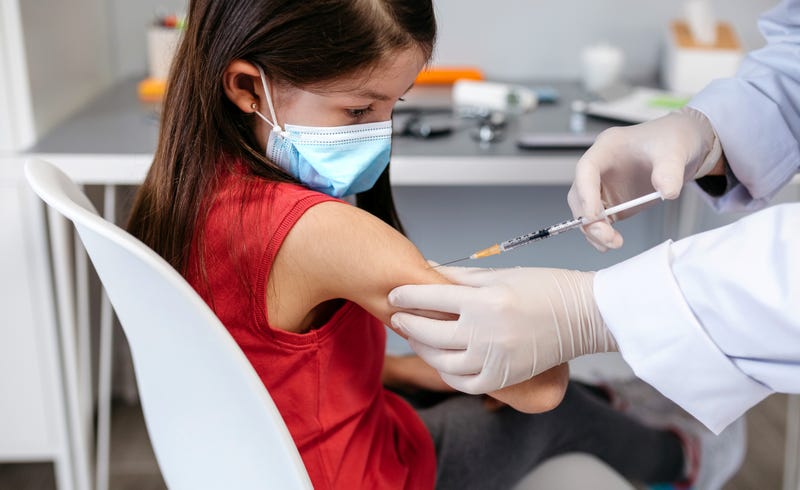
The long-awaited day has arrived.
After delays and reviews, kids aged 5 to 11 can now get a COVID-19 vaccine. A CDC advisory committee recommended the Pfizer vaccine be approved for young kids on Tuesday, with CDC Director Rochelle Walensky issuing a formal recommendation for use just hours later.

Now that this day has arrived, it’s a bit hectic and confusing for parents to figure out where to go and when to get their kids their vaccine.
"Talk to your doctors about whether they’re giving it or not," said Dr. George Rutherford, Pediatrician and Director of Prevention and Public Health Group at UCSF on Wednesday’s Ask an Expert with KCBS Radio’s Holly Quan and Eric Thomas.
Kaiser Permanente and other medical providers will most likely be setting up clinics soon. Counties are doing the same, San Francisco is organizing an after-school clinic and a weekend clinic to help distribute doses.
"But there are a million variables here," said Rutherford. First thing, parents should check with county sites to learn more information and then check with their pediatrician, he suggested.
But just as, or perhaps even more exciting, is that now that the vaccines are available for this age group, several Bay Area counties have a timeframe for when indoor masking will no longer be required.
There are three criteria requirements: counties need to be three weeks consistently in the moderate or below tier for transmission rates, low hospitalization rates, and having either 80% of the population vaccinated or having eight weeks pass after vaccination for kids aged 5-11 becomes available.
Some counties, like Marin, have already met these requirements and loosened masking restrictions earlier this week.
But for others it’s a pending question for after the eight week mark, roughly after Christmas – should masks go or not.
There have to be high levels of vaccination in order to achieve that, said Rutherford. A large outbreak in the United Kingdom among younger kids under the age of 15 is giving him pause. "You have got to be careful about this stuff."
It will be up to local health and school officials how to go about this new territory, especially in the classroom. The three criteria requirements set by the county health departments "are a floor, not a ceiling," said Rutherford. "If people wanted to make it more stringent, school districts can do that."
Although there are some concerns of health risks, such as inflammatory heart conditions developing in teenage boys with the vaccine, that shouldn’t be an issue for this age group, said Rutherford.
Those getting ready to get their children vaccinated soon should make sure they note that there is a minimum wait time in between doses of three weeks, Rutherford emphasized. But many health experts feel it’s better to spread the two doses even farther apart, that it would help the vaccine work better and lead to fewer adverse effects, he said.
"I would vote in favor of spacing it farther out, like four weeks or five weeks and not rushing to get the two doses in three weeks," he said.
Waiting longer creates a "bigger immune response," said Rutherford. This is common for the majority of pediatric vaccines, he added.

